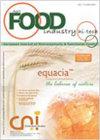Micronutrients Role in the Proinflammatory Cytokine Gene Expression Regulation in COVID-19 and Post-COVID-19 Syndromes
Q Engineering
引用次数: 0
Abstract
A number of micronutrients in the diet are substances capable of inhibiting the genes expression of cyclooxygenases COX-1 and COX-2 and inducible NO synthase that are markers of the inflammatory process in COVID-19. The study aims at the development of the composition micronutrients – an inhibitor of hyperinflammatory reaction as an effective component of personalized nutrition in COVID and post-COVID syndromes. The thesis presents the anti-inflammatory potential of some micronutrients; proves the impact of flavonoids, ascorbic acid, glycyrrhizic acid and zinc on different targets; describes developed two-, three- and four-component compositions of the listed micronutrients in different ratios, which will ensure effectiveness against a larger number of targets. For preclinical studies of anti-inflammatory activity, a man selected six composition samples with maximum values of antioxidant activity using regression analysis; determined the biological activity of the composition samples: in vitro – using specific enzyme biotest systems based on inducible NO synthase and appropriate software, in vivo – on a model of acute aseptic and chronic inflammation in 220 outbred male Wistar rats. In vitro experiment confirms that the anti-inflammatory activity of experimental samples of the micronutrients composition decreases in the following series: III-2 > III-1 > VI-2 > VI-1 > I. The blood plasma analysis of rats in vivo proves that with prolonged course use, micronutrients composition samples III-1, III-2, VI-1 and VI-2 exhibit a pronounced antiexudative effect and lead to a significant decrease in COX-2. The course micronutrients composition introduction at a dose of 25 mg/kg leads to a significant decrease in the COX-2 concentration in all the studied animal groups. There is the COX-2 activity suppression in sample III-2 to a greater extent. The authors recommend the three-component composition including a micronized purified flavonoid fraction of sea buckthorn meal, glycyrrhizic and ascorbic acids in a ratio of 30:10:100 as a biologically active food additive in the diet of personalized nutrition for COVID and post-COVID syndromes.微量营养素在COVID-19和COVID-19后综合征中促炎细胞因子基因表达调控中的作用
日粮中的许多微量营养素是能够抑制环氧化酶COX-1和COX-2以及诱导型NO合成酶基因表达的物质,而环氧化酶是COVID-19炎症过程的标志物。该研究旨在开发复合微量营养素-一种高炎症反应抑制剂,作为COVID和COVID后综合征个性化营养的有效组成部分。本文介绍了一些微量营养素的抗炎潜力;验证了黄酮、抗坏血酸、甘草酸和锌对不同靶点的影响;描述所列微量营养素以不同比例开发的二组分、三组分和四组分组成,这将确保对更多目标的有效性。在抗炎活性的临床前研究中,一名男子使用回归分析选择了六种抗氧化活性最高的成分样品;测定组合物样品的生物活性:体外-使用基于诱导NO合成酶的特定酶生物测试系统和适当的软件,体内-在220只异交雄性Wistar大鼠的急性无菌和慢性炎症模型上。体外实验证实,实验样品的抗炎活性降低的顺序为:III-2 > III-1 > VI-2 > VI-1 > I.大鼠体内血浆分析证明,随着疗程的延长,微量营养成分样品III-1、III-2、VI-1和VI-2表现出明显的抗渗出作用,导致COX-2明显降低。以25mg /kg剂量引入微量营养素组合物的过程导致所有研究动物组中COX-2浓度的显著降低。样品III-2中存在较大程度的COX-2活性抑制。作者推荐三组分组合物,包括沙棘粉、甘草酸和抗坏血酸的微粉纯化类黄酮部分,比例为30:10:100,作为COVID和后COVID综合征个性化营养饮食中的生物活性食品添加剂。
本文章由计算机程序翻译,如有差异,请以英文原文为准。
求助全文
约1分钟内获得全文
求助全文

 求助内容:
求助内容: 应助结果提醒方式:
应助结果提醒方式:


